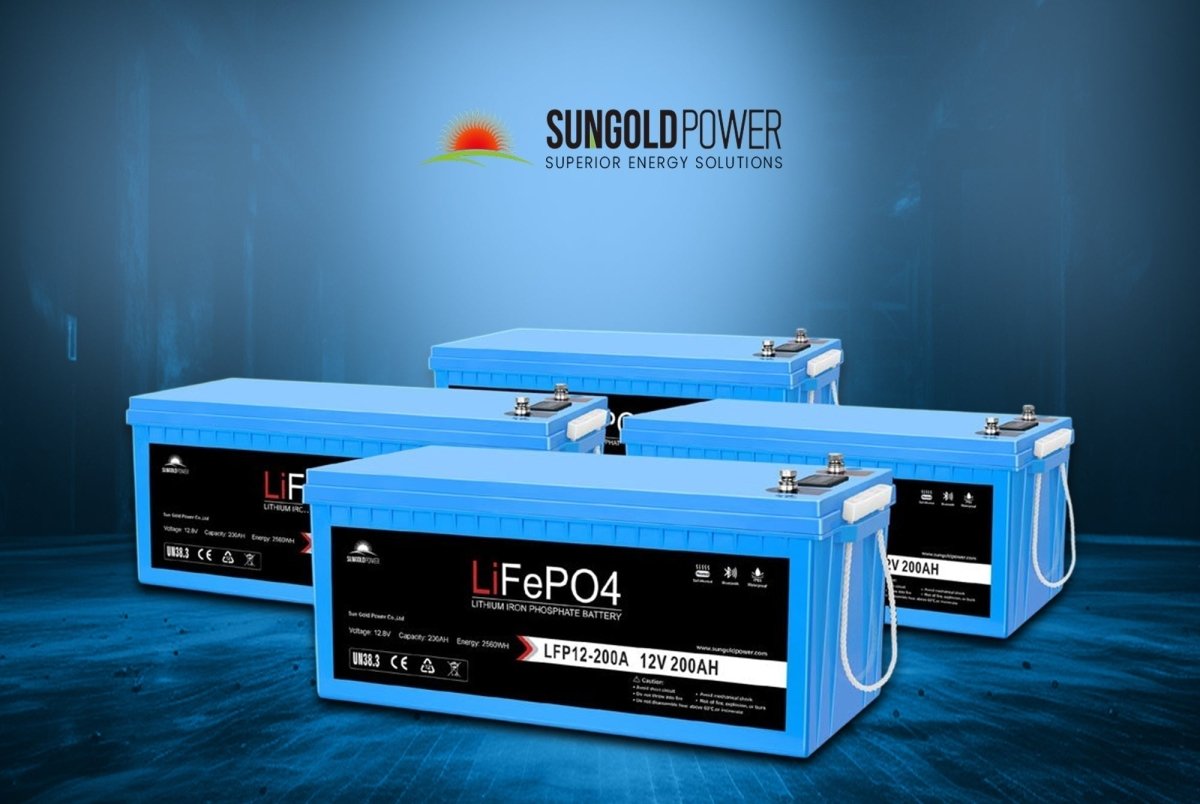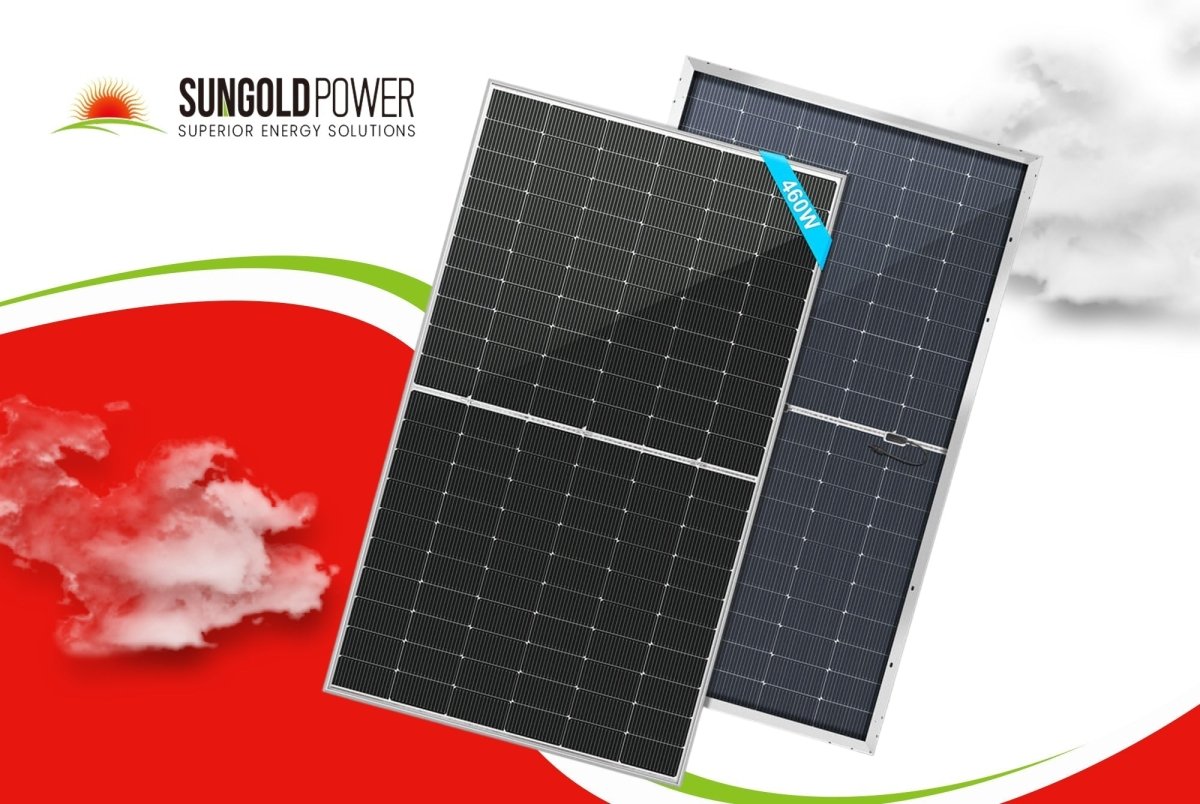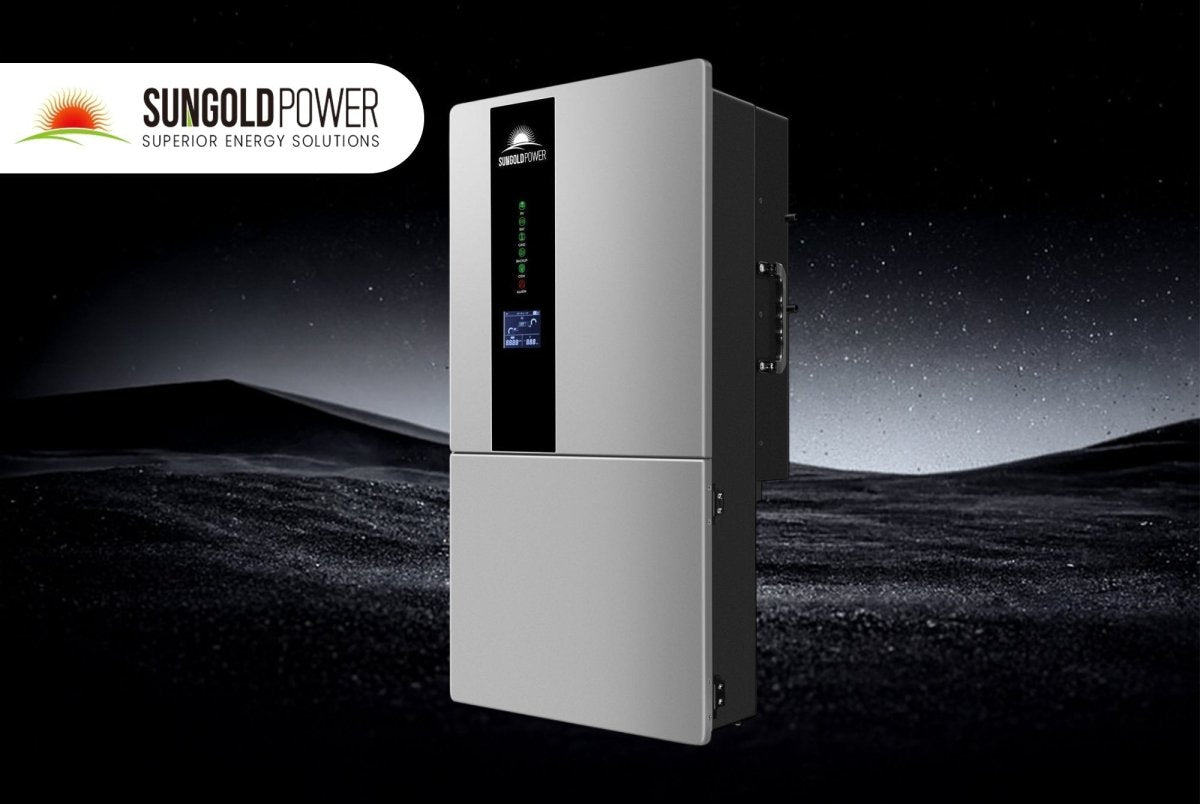Demi Moreno - May 26 2024
Is the LiFePO4 Battery the Safest Choice for Your Energy Needs?

IIn an era where sustainability and efficiency are paramount, the future of energy storage lies in pushing the limits of technology. The demand for solutions that offer greater capacity, higher voltage, extended lifespans, and most importantly, safety, is on the rise. Lithium-ion batteries, once the gold standard for grid-tied solar backup systems, are now sharing the spotlight with a promising contender: Lithium Iron Phosphate (LiFePO4) batteries.
TABLE OF CONTENTS:
· What Are LiFePO4 Batteries?
· Are LiFePO4 Batteries Inherently Safe?
· What are the Potential Hazards?
· 48V 100Ah Lithium Battery
· Battery Usage Precautions
· Stay Safe, Stay Powered!
What Are LiFePO4 Batteries?
LiFePO4 batteries are a type of lithium-ion battery that uses lithium iron phosphate (LiFePO4) as the cathode material and carbon as the anode. Compared to other lithium-ion batteries like Nickel Manganese Cobalt (NMC) and Nickel Cobalt Aluminum (NCA), LFP batteries have a lower energy density and operate at a lower voltage.
LiFePO4 batteries are known for their high operating voltage, large energy density, long cycle life, excellent safety performance, low self-discharge rate, and lack of a memory effect.
During charging, lithium ions from the LiFePO4 cathode are released and migrate through the electrolyte to the anode, where they intercalate into the carbon material. Electrons are also released from the cathode and travel through the external circuit to the anode, maintaining chemical equilibrium. The process is reversed during discharge, providing energy to the external circuit.
LiFePO4 is currently the safest cathode material for lithium-ion batteries. It is free of heavy metals harmful to humans. Its olivine structure is less likely to release oxygen, enhancing material stability. The stability of the LiFePO4 cathode material ensures a stable charge and discharge platform. As a result, the battery's structure remains unchanged during charge and discharge, preventing combustion and explosion, even under special conditions like short-circuiting, overcharging, compression, and puncture.

Are LiFePO4 Batteries Inherently Safe?
All types of batteries carry certain safety risks if mishandled or of poor quality. So, are LiFePO4 batteries prone to explosion during charging? To answer this, we must delve into their working principles and potential safety hazards.
The operation of LiFePO4 batteries is based on the movement of lithium ions between the anode and cathode. During charging, lithium ions move from the cathode to the anode, and the opposite occurs during discharging. This process is facilitated by the electrolyte, making its stability crucial for overall battery safety.
Explosions typically refer to uncontrolled chemical reactions that result in rapid gas generation and energy release. Overheating can occur within the battery during charging, and if temperature control is inadequate, it can lead to structural damage, causing short circuits or thermal decomposition of the electrolyte, potentially leading to fires or explosions. However, LiFePO4 batteries have higher thermal stability compared to other types, such as NMC batteries, making them less likely to undergo dangerous thermal runaway reactions under normal operating conditions.
Whether a LiFePO4 battery can "explode" depends on the presence of conditions for an explosion in everyday scenarios. An explosion requires sufficient oxygen, combustible material concentration, a source of ignition, and a confined space. LiFePO4 batteries, due to the properties of the materials themselves, only begin to decompose at temperatures around 500-600°C. Compared to the high-nickel materials in NMC batteries that start to decompose and release oxygen at around 200°C, LiFePO4 batteries are much safer. The P-O bond in the LiFePO4 crystal is robust, and even at high temperatures, it does not form strongly oxidative substances. With limited oxygen supply in the battery compartment, it cannot instantly generate high temperatures by itself, making it difficult to meet the conditions for an explosion. LiFePO4 batteries inherently possess good safety.
What are the Potential Hazards?
However, it's important to note that LiFePO4 batteries can still pose safety risks under certain conditions.
1. Manufacturing defects: Quality control issues during production, such as damaged separators or uneven electrode plates, can lead to short circuits.
2. Overcharging and over-discharging: Exceeding the designed depth of charge and discharge increases safety risks.
3. External damage: Mechanical impact or puncture can damage the battery structure, causing short circuits.
4. Improper temperature control: Extreme heat or cold affects battery performance and safety.
5. Charger failure: Using inappropriate solar charger inverter or incorrect charging parameters can lead to problems.
Although LiFePO4 batteries are chemically more stable, it does not mean they cannot explode during charging. Correct usage, thoughtful design, and strict quality control are key to ensuring battery safety. Manufacturers should adhere to strict industry standards and ensure products are thoroughly tested. Users should also follow operating instructions to avoid improper use.
SunGoldPower SG48100P 48V 100Ah Lithium Battery
The SG48100P 48V lithium battery is designed for energy storage systems. It offers a well-designed, high-performance standard battery pack. Compact, easy to install, and maintenance-free, it can be paralleled in energy storage systems to increase capacity. It is widely used in residential applications, small commercial, and industrial energy storage systems.

Intelligent BMS: Real-time measurement, monitoring, and management system that optimizes system life through smart algorithms. The battery management system can manage and monitor battery information, including voltage, current, and temperature, preventing overcharging, deep discharging, overloading, overheating, and short circuits, helping to extend battery life.
Durable Battery Module: Modular design for easy expansion, with a maximum of 32 in parallel for a capacity of 163.84 kWh. Integrated automotive LFP batteries have a lifespan of ≥7000 cycles.
Broad Compatibility: The comprehensive BMS is compatible with most inverters on the market. CAN/RS485/RS232 communication protocols ensure that the lithium-ion battery can be compatible with most inverters, such as Growatt, Deye, SunGoldPower, Luxpower, Victron energy, Schneider, Phocos, SMK, etc.
Battery Usage Precautions
Before use, carefully read the instruction manual and precautions. When used correctly according to product characteristics, the battery will be a safe, reliable, and convenient energy storage device.
1. When charging, ensure polarity is correct and do not reverse the battery terminals.
2. Do not expose the battery to adverse environments, such as extreme temperatures, deep cycles, or frequent overcharging/discharging.
3. If any abnormalities are detected, stop using the battery immediately and report it for professional treatment.
4. Ensure the battery and BMS are kept away from hazardous materials.
5. Short-circuiting the battery is prohibited.
6. Burning or destroying the battery is prohibited, as it can lead to harmful releases or combustion.
7. Do not disassemble, squeeze, puncture, or burn the battery.
8. Exposure to rain is prohibited.
9. Direct exposure to sunlight is prohibited.
10. Exposure to temperatures above 60°C is prohibited.
11. Do not dispose of batteries in the trash.
12. Do not use different types of batteries in series or parallel with lithium-ion batteries.
13. Do not use new and old batteries (packs) in series or parallel.

Stay Safe, Stay Powered!
Safety is paramount at all times. While LiFePO4 batteries have multiple safety protections and explosions are extremely low-probability events, it is advisable for solar users to focus on battery maintenance to extend their lifespan. Consumers still considering solar energy can confidently choose LiFePO4 batteries for their energy storage needs.
High-quality manufacturers like SunGoldPower can significantly improve the pass rate of battery production. SunGoldPower is a manufacturer capable of independent research, development, production, and sales of LiFePO4 batteries, aiming to provide the best one-stop battery energy storage solutions for users worldwide.
If you want to learn more about LiFePO4 batteries, please contact us immediately. We are happy to provide professional assistance.




